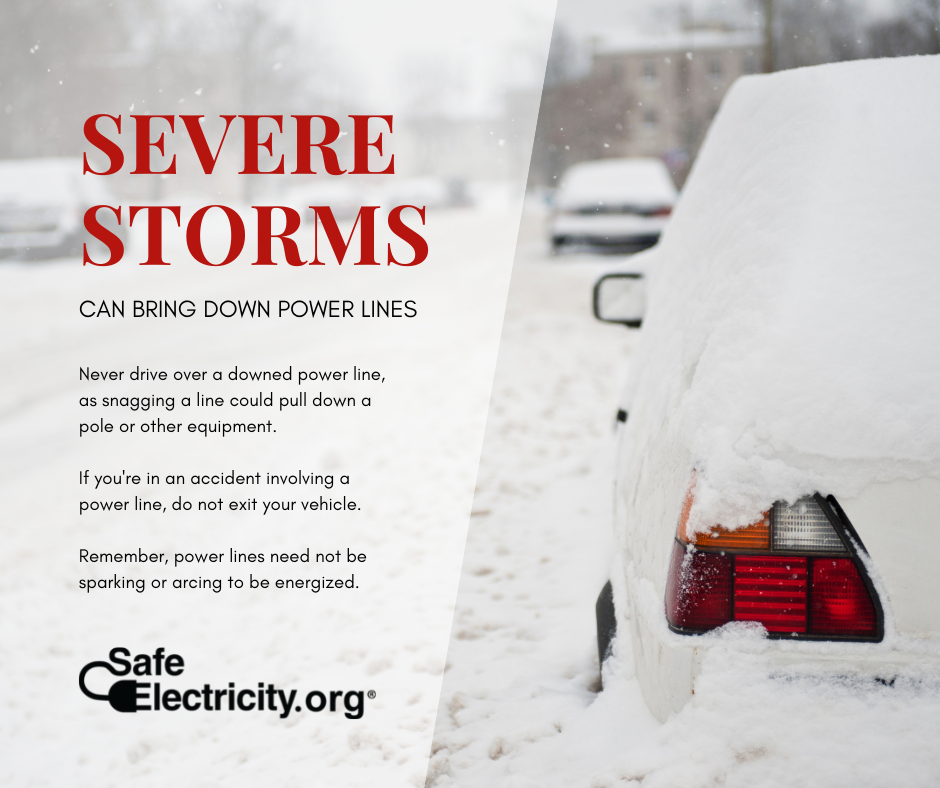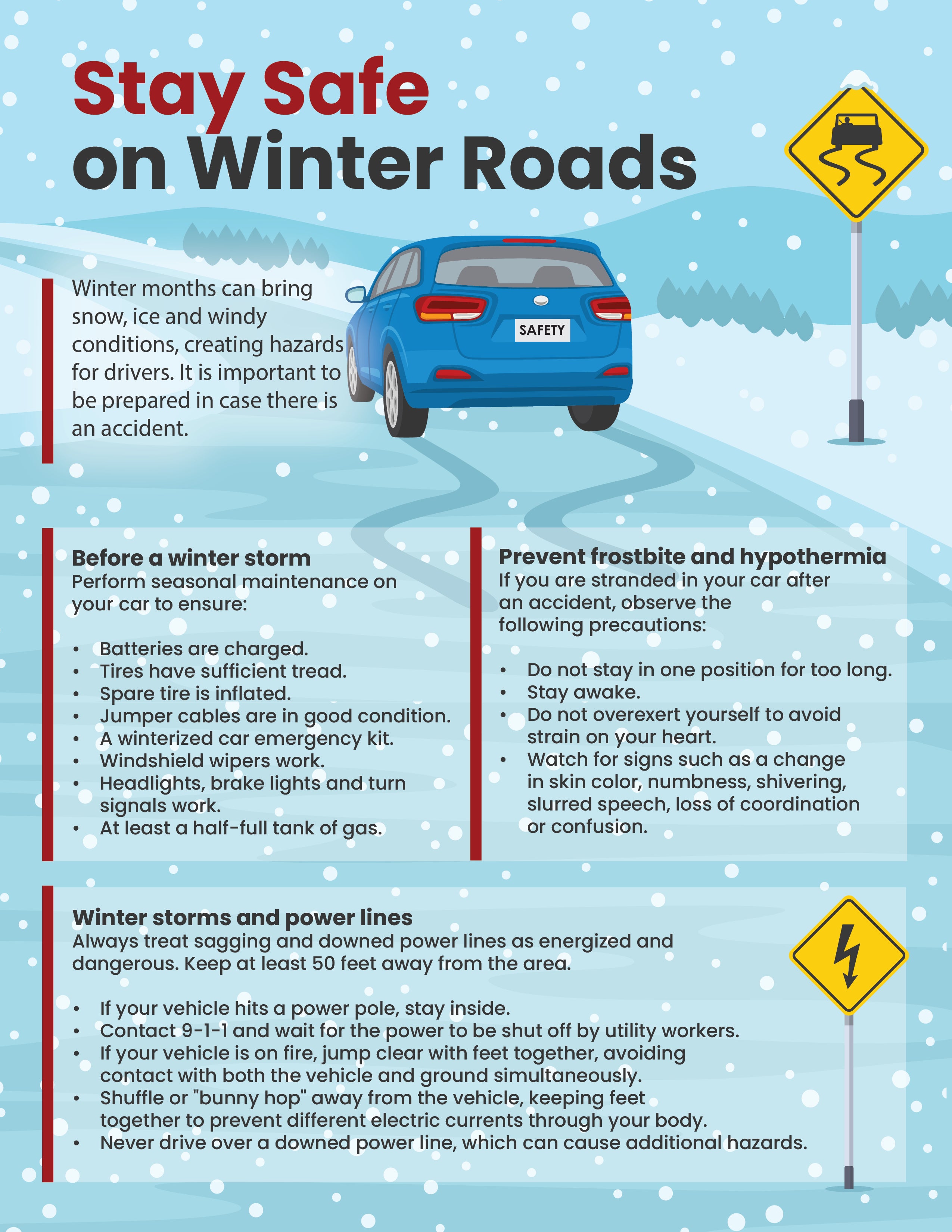Stay safe on winter roads
Winter months can bring snow, ice and windy conditions, which create additional hazards for drivers.
Should an accident occur, it is important to be prepared. Automobile crashes always present danger, but when electricity is involved, decisions made in the moments after the accident are especially crucial.
According to the U.S. Department of Transportation (DOT) Federal Highway Administration, 24 percent of weather-related vehicle crashes occur on snowy or icy pavement.
Here are tips to help drivers stay safe on the roads this winter.

Before the winter storm
Prepare ahead for cold temperatures, snow and ice with seasonal maintenance on your car to ensure:
- Batteries are charged.
- Tires have sufficient tread.
- The spare tire is inflated.
- Jumper cables are in good condition.
- A winterized car emergency kit is on board.
- Windshield wipers work.
- Headlights, brake lights and turn signals work.
- The gas tank is at least half full.
Create a car emergency kit
Be especially cautious driving, and keep an emergency kit in your vehicle, which should include:
- Blankets
- Flares
- Ice scraper
- Portable shovel
- Sand or kitty litter for traction
- First aid kit
- Phone charger
- Flashlight and extra batteries
- Warm hat
- Non-perishable snacks
- Bottled water
If you are stranded in your car after an accident, watch for signs of frostbite or hypothermia. Observe the following precautions:
- Do not stay in one position for too long.
- Stay awake.
- Do not overexert yourself to avoid strain on your heart.
- Watch for signs such as a change in skin color, numbness, shivering, slurred speech, loss of coordination or confusion.
Downed power lines
Due to the potential for a winter storm to bring down power lines, individuals should only venture outside if necessary.
Slow down when driving in icy conditions, and always keep your eyes out for hazardous conditions or downed power lines. Also, watch for debris near down poles and lines, as it may be energized as well.
If you see a car in an accident with a power pole, your first instinct may be to rush toward the vehicle to offer help.
Always remember to keep your distance from the vehicle and all electrical equipment that has been damaged. Instruct those in the car to stay inside until the power has been shut off.
If you must exit the vehicle because it is on fire, jump clear of it with your feet together and without touching the vehicle and ground at the same time. Keeping your feet together, shuffle or “bunny hop” to safety.
Doing this will ensure that you will not have different strengths of electric current running from one foot to another.
Keep in mind that a downed line does not need to be sparking to be energized. It is best to assume that all low and downed lines are energized and dangerous.
Never drive over a downed line because that could pull down a pole or other equipment, causing additional hazards.
If you see a downed line, do not get out of your car. The safest place is inside your vehicle. Contact 911 to notify the utility immediately.
For utility crews, repairing damaged power lines is especially dangerous during storm conditions. The increased hazards mean that extra time and attention must be dedicated to ensure power is safely restored.
Have patience while lineworkers restore power in these adverse conditions, and remember to observe safety precautions and always be prepared for driving in dangerous winter conditions.

